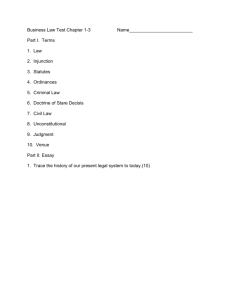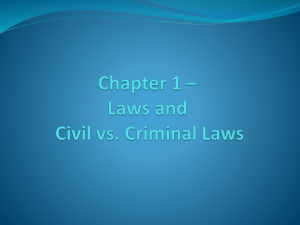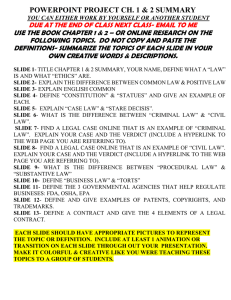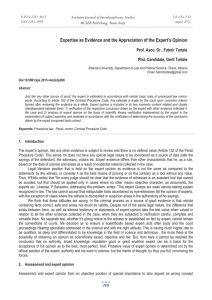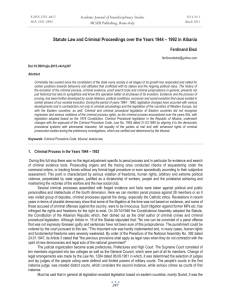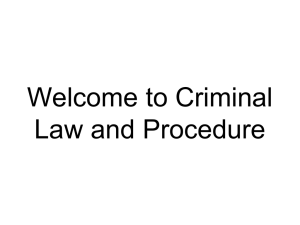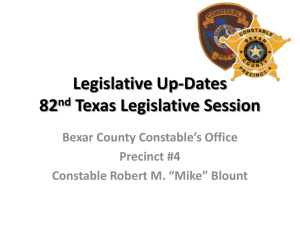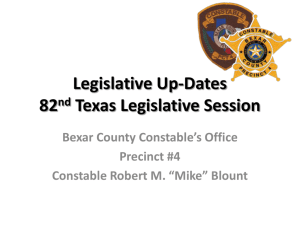lesson 1
advertisement
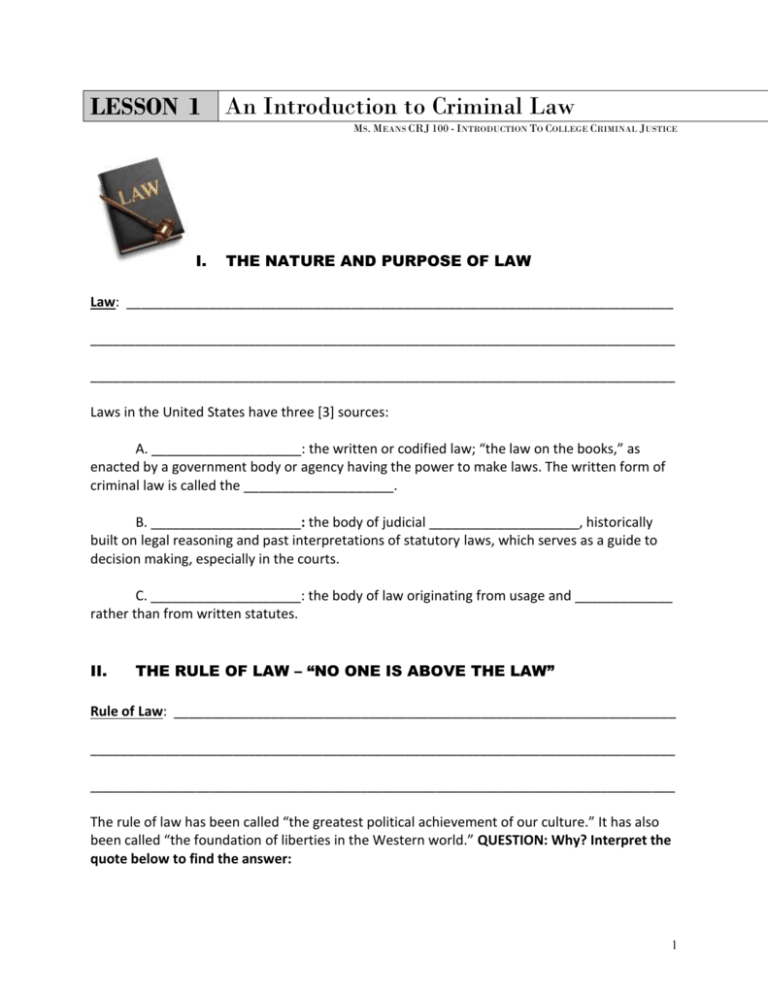
LESSON 1 An Introduction to Criminal Law MS. MEANS CRJ 100 - INTRODUCTION TO COLLEGE CRIMINAL JUSTICE I. THE NATURE AND PURPOSE OF LAW Law: _________________________________________________________________________ ______________________________________________________________________________ ______________________________________________________________________________ Laws in the United States have three [3] sources: A. ____________________: the written or codified law; “the law on the books,” as enacted by a government body or agency having the power to make laws. The written form of criminal law is called the ____________________. B. ____________________: the body of judicial ____________________, historically built on legal reasoning and past interpretations of statutory laws, which serves as a guide to decision making, especially in the courts. C. ____________________: the body of law originating from usage and _____________ rather than from written statutes. II. THE RULE OF LAW – “NO ONE IS ABOVE THE LAW” Rule of Law: ___________________________________________________________________ ______________________________________________________________________________ ______________________________________________________________________________ The rule of law has been called “the greatest political achievement of our culture.” It has also been called “the foundation of liberties in the Western world.” QUESTION: Why? Interpret the quote below to find the answer: 1 “Americans are free to disagree with the law, but not to disobey it; for [in] a government of laws and not of men, no man, however prominent and powerful, no mob, however unruly or boisterous, is entitled to defy a court of law.” –John F. Kennedy ______________________________________________________________________________ ______________________________________________________________________________ ______________________________________________________________________________ Complete the following statement regarding the rule of law: The rule of law is important to Western democratic culture because it establishes a balance between _________________________________ & __________________________________. III. TYPES OF LAW A. Criminal Law aka Penal Law: __________________________________________________ ______________________________________________________________________________ ______________________________________________________________________________ 1. _________________________: the part of the law that defines crimes and specifies punishments. For examples definitions of and punishments for the following: __________________ __________________ __________________ __________________ 2. _________________________: the part of the law that specifies the methods to be used in enforcing substantive law. In other words, the procedures by which legal rights are enforced. For example, rules concerning the following are part of procedural law: ____________________________________________________________ ____________________________________________________________ ____________________________________________________________ ____________________________________________________________ 2 QUESTION: What is the result when a criminal law is violated? B. _____________________: the branch of modern law that governs relationships between and among people, businesses and other organizations, and agencies of government. For examples, civil law includes rules for the following: _________________________________________________ _________________________________________________ _________________________________________________ _________________________________________________ _________________________________________________ _________________________________________________ _________________________________________________ ________________________________________________ _________________________________________________ QUESTION: What is the result when a civil law is violated? C. __________________________ body of regulations that governments create to control the activities of industries, businesses, and individuals. For example, administrative law includes: Tax laws Health codes Restrictions of pollution & waste disposal Building codes Vehicle regulation D. _________________________: comes from judicial decisions and represents the accumulated wisdom of trial and appellate courts in criminal, civil, and administrative law cases over the years. ________________________________________________________________________ ________________________________________________________________________ ________________________________________________________________________ stare decisis: “standing on decided terms”- ____________________________________ ________________________________________________________________________ 3 CHAPTER 4 VOCABULARY – CRIMINAL LAW – List 1 law statutory law penal code case law rule of law criminal law substantive criminal law procedural law civil law precedent appellate court stare decisis felony misdemeanor offense 4


